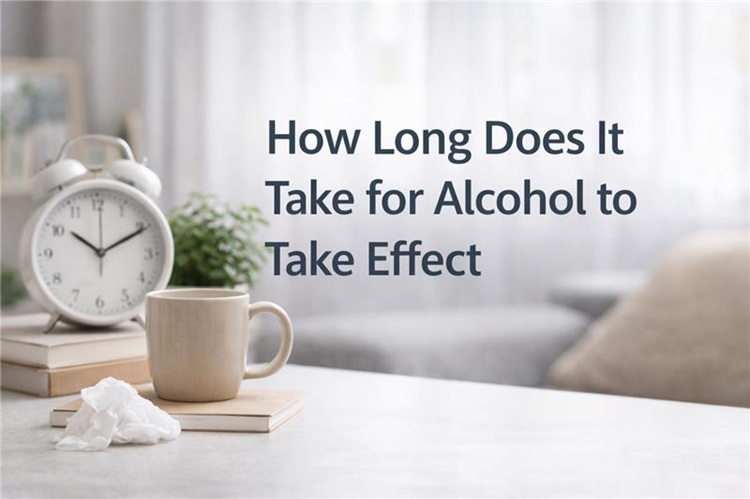Every September, these Americans come together to create awareness on mental health and substance use recovery. When is it National Recovery Month? This is the question I asked myself and the answer is September. It is an annual celebration of the strength of the recovering individual, evidence-based therapy, and the value of the support network in the long-term health.
National Recovery Month was launched in 1989 and has been a trailblazer since then among communities, treatment centers and advocacy groups. Every year, a theme is presented that seeks to provide hope and raise awareness about a substance use disorder and mental health recovery.
Why September Matters for Recovery
September was chosen not by chance. It is an age of renaissance, of self-reflection and self-cohesion. During the month, the advocates and treatment providers can enlighten the community about the importance of providing access to care, reduce stigma, and celebrate the millions of Americans who live meaningful lives through recovery.
September serves to remind many that they can recover and that treatment works. Whatever side you are on, or whom you are helping, National Recovery Month connects you with information, experience, and inspiration.
National Recovery Month Activities
In September, communities across the country are participating in National Recovery Month activities to make recovery visible to the general public. These events are aimed at lessening stigma, educating and glorifying resilience. Common activities include:
- Recovery walks and rallies: Local communities commonly hold walks to celebrate those recovering and honor those who have been lost to the addiction
- Educational workshops: Therapy facilities and nonprofits conduct mental health, substance use prevention, and recovery resource workshops.
- Storytelling events: Recovery participants tell their stories, which show others that recovery is possible.
- Community fairs: Providing free screenings, resources and information to those in need of help.
- Social media campaigns: Hashtags and online events come together with people throughout the country spreading messages of hope and support.
Engaging in such activities not only creates awareness, but it also creates links. Depending on whether you are present at an event or participate in an online campaign, all the activities contribute to the normalization of conversations around recovery.
100% Confidential Support is Available 24/7
No matter what you’re going through, you’re not alone. Our dedicated team is here to provide a safe, judgment-free space where you can talk openly and honestly. Whether you need emotional support, resources, or just someone to listen.
We’re here for you—completely confidential and always respectful of your privacy. Call us today!
National Recovery Month 2025 Theme
The Recovery Month every year has a special theme. The theme of the National Recovery Month 2025 is a continuation of the tradition to inspire change and create awareness about the recovery journey. Resilience, strength of community, and access to treatment are frequent themes.
Themes may differ, but the main idea is that things can improve, and individuals should be treated kindly and respectfully. With the organizers linking events and campaigns to an annual theme, they keep mental health and addiction issues fresh, relevant, and impactful.
Deland Treatment Solutions
Battling with Drug and Alcohol Addition? Remember, you are not alone and we are here to help you!
What Color Is National Recovery Month?
You might also have the question of recovery symbols. What is the color of National Recovery Month, then? The accepted color is purple, which is a representation of bravery, power and change. Individuals and organizations are putting on purple ribbons or adding the color to their events in order to demonstrate their alignment with the recovery community.
Colours may serve as effective instruments of awareness. Purple is both a reminder that recovery is something to be celebrated, not embarrassed about.
Why National Recovery Month Is Important
National Recovery Month is not a holiday but a movement. It also recognizes the hardships of addiction and mental illnesses but reveals the ray of hope of recovery.
- This month can help to:
- Less stigma related to treatment and recovery.
- Promote people to consult.
- Demonstrate successful stories that make others want to take action.
- Bring communities together to help people in recovery.
This is a collective effort to remind us every September that recovery is not only possible, it is also happening every day.
Take the Next Step Toward Recovery
Whether you or a loved one are grappling with an addiction or a mental health comorbidity, there is no need to wait until September. We offer evidence-based treatment at DeLand Treatment Solutions that is compassionate and responsive to your individual needs. Our team knows that recovery is an individual process and we are here to support you through it all.
Call us at (386) 866-8689 and start your recovery process. You do not need to wait until tomorrow to start your future, healing can begin today.
FAQs about National Recovery Month
Is there a National Recovery Month?
Yes, National Recovery Month is observed every September in the United States. It’s a nationwide effort to raise awareness about mental health and substance use recovery, celebrate successes, and promote access to treatment and support services.
What is the color for National Recovery Month?
The official color for National Recovery Month is purple. This color represents courage, resilience, and hope. Many people wear purple or display purple symbols during September to show support for individuals in recovery.
Is there a color for sobriety?
Yes, silver is often associated with sobriety and symbolizes a fresh start, renewal, and commitment to recovery. While purple represents National Recovery Month, silver is commonly linked to the personal journey of sobriety.
Is October a recovery month?
No, October is not designated as National Recovery Month. The observance takes place every September. However, recovery and awareness efforts continue year-round, and many organizations host related events throughout the year.





















